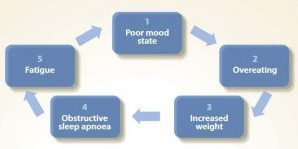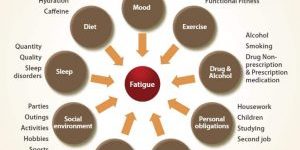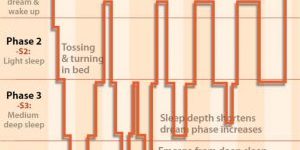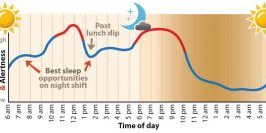Meal type and fatigue
Why is fatigue a problem?
The consequences of fatigue are unpredictable. They can range in severity and should not be taken lightly. The simple act of falling asleep may result in something as harmless as lost production, but it could also cause an accident or catastrophic event, whereby you may injure or kill yourself and/or others! Fatigue typically leads to……
Managing mental health and fatigue
When trying to establish the cause of an individual’s fatigue, it is easy to get caught up in the end point, or symptoms, of fatigue. However, start digging a little deeper and you may be able to identify the factors causing fatigue. Once we determine the underlying causes of fatigue, we are better able to……
What are the best methods to improve sleep quality during menopause?
Many women report disturbed sleep during perimenopause and menopause. This often includes difficulty falling or staying asleep and waking through the night or very early in the morning. There are many possible contributing factors during this period, including: To improve sleep during perimenopause and menopause, the contributing factors that are specific to you will need……
Optimising sleep for night shift
In a 2018 article in the British Medical Journal (BMJ 2018;360:j5637 doi: 10.1136/bmj.j5637 [Published 1 March 2018]) the topic of optimsing sleep for night shift was covered with the aim to provide sleep management skills for the individual. The article presents the best evidence from trials, guidance material and expert opinion, but outlines the limited……
Mealing timing and fatigue
Our bodies perform best when given a regular supply of food throughout the day rather than one large meal. This means that to start maximising your energy you need to have a good think about when you eat your meals, and how much you have. Once you find a good pattern of eating you will……
What can you do to manage fatigue?
Taking action against fatigue happens in two forms: 1) the action you take when you experience fatigue; and 2) the action you take to prevent fatigue and therefore become more fatigue resistant. Figure 1 below summarises the causes of fatigue and identifies the areas that need to be focused on to build fatigue resistance. Although……
Mood & physical activity
Think about the last time you took a brisk walk. How did you feel afterwards? I bet you felt good! You don’t have to wait for the good feeling physical activity brings. It starts right away – and then gets better. Studies have shown that regular physical activity reduces stress-related symptoms and decreases the risk……
Anxiety and fatigue
While the symptoms of anxiety disorders change with the specific diagnosis, the common theme is an overwhelming sense of worry and the associated lack of concentration, feeling tired and irritable. To put it simply, anxiety is when you worry about being worried. Feelings of anxiety are common in certain situations throughout life. However, when people……
How sleep works
Good sleep helps us wake up feeling refreshed and alert for our daily activities. Sleep affects how we look, feel and perform on a daily basis. If sleep is cut short, the body doesn’t have time to complete all of the phases, which can leave us feeling drowsy, tired and fatigued. IMPORTANTExperts have warned that……
When should I sleep?
Our levels of alertness and attention are influenced by our circadian rhythms, as shown in the figure below. Circadian rhythms allow us to feel more alert during the day and less alert during the evening. This is the primary reason it is difficult to stay awake at night and why we may struggle to sleep……










